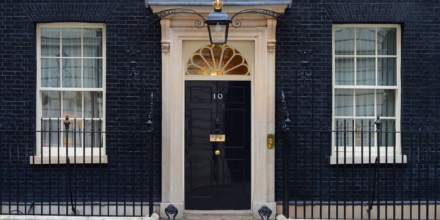This afternoon, Chancellor Jeremy Hunt presented his long-anticipated spring budget to the House of Commons. From hints of a new 99% mortgage to amendments to national insurance, we’ve curated the highlights of the Spring 2024 budget, and what did and didn’t happen as it pertains to the property market so that you can stay in the loop.
National Insurance
The headline of the Chancellor’s spring budget has been the reduction of national insurance. As of April 6th, there will be a further 2p cut from national insurance for both employed and self-employed individuals, building upon the 2p reduction announced in the 2023 Autumn Statement for 27 million workers. This cut to National Insurance will mirror that of an income tax cut by essentially putting more money back into worker’s pockets by allowing them to keep more of their take-home pay. This is the lowest personal tax rate since the 1970’s.
But just how impactful will this cut be? For those earning £20,000pa, you can expect to save £149 per year, and those earning over £60,000 will save £754 per year.
Childcare
60,000 more parents will enter the workforce by 2028, and the Chancellor stated that he will continue to assist working parents by extending free childcare offerings. Hunt has expressed his intention to seek input regarding a proposed regulation shift, aiming to extend the benefit to encompass collective household income rather than individual income. He anticipates implementing this change by April 2026. In more immediate relief efforts, Hunt has declared an increase in the threshold from £50,000 to £60,000. Additionally, the upper limit for the taper, at which the benefit is gradually withdrawn, will rise to £80,000.
Multiple Dwellings Relief and Capital Gains Tax
Hunt is also declaring the elimination of multiple dwellings relief for individuals purchasing multiple properties, citing frequent abuse as the reason for this decision. He stated that originally the relief was brought into action in order to encourage purchasing in the buy to let sector. However, despite the abolition of this multiple dwellings relief translating to more expenditure for buy to let landlords, Hunt has also announced something to benefit those with property portfolios – a reduction in capital gains tax. The Chancellor has reduced the higher rate of capital gains tax from 28% to 24% in the hope that this will encourage more property transactions.
Holiday Lets
The chancellor announced plans to eliminate tax incentives that currently encourage second-home owners to prioritize renting their properties to vacationers over long-term tenants. As such, Hunt intends to do away with the furnished holiday lettings system in the hope that more properties will be listed for long-term rentals, thereby improving the supply-demand imbalance across the property market.
Inflation
As inflation increases, house prices generally stagnate. Thankfully, inflation has come down to 4% and the OBR states that we will reach the government’s target of 2% in just two months, almost a year early. This is likely to propel property price growth to the benefit of investors.
Levelling Up
Chancellor Hunt continued his dedication to the government’s Levelling Up initiative, pledging £20 million to community led housing schemes. Investment in being funneled into Sheffield, Blackpool and even London’s Canary Wharf. Funds have also been allocated to the West Midlands Combined Authority.
What didn’t make its way into the Spring Budget?
Two policies that didn’t make their way into Hunt’s Spring budget were the reintroduction of 99% mortgages and a proposed reduction to income tax. Instead, Chancellor Hunt made similar measures to benefit the housing market and reduce tax by reducing capital gains taxes, continuing the pursuit of the Levelling Up scheme, and by reducing national insurance by 2p. There has been a degree of hesitancy from property professionals about the reintroduction of the 99% mortgage with fears that it could ‘overheat’ the housing market and recreate elements of the 2008 market crash which saw borrowers unable to pay back their exceptionally high mortgage costs.
Want to find out more about the way the Chancellor’s spring budget could impact you? Get in touch with the Centrick team via the form below.









